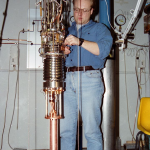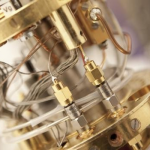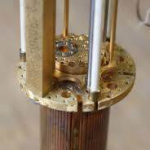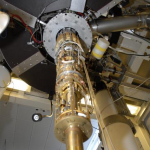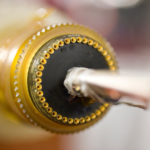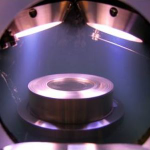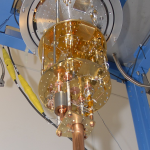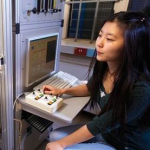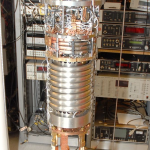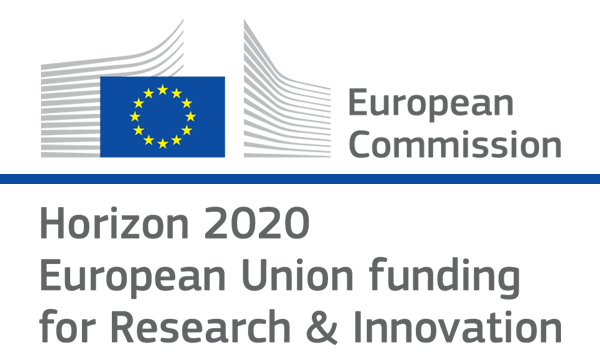

- Photon Transport in a Bose-Hubbard Chain of Superconducting Artificial Atoms
G. P. Fedorov et al., Phys. Rev. Lett. 126, 180503 (2021) - Path-Dependent Supercooling of the
He3 Superfluid A-B Transition
Dmytro Lotnyk et al., Phys. Rev. Lett. 126, 215301 (2021) - Superconductivity in an extreme strange metal
D. H. Nguyen et al., Nat Commun 12, 4341 (2021) - High-Q Silicon Nitride Drum Resonators Strongly Coupled to Gates
Xin Zhou et al., Nano Lett. 21, 5738-5744 (2021) - Measurement of the 229Th isomer energy with a magnetic micro-calorimeter
T. Sikorsky et al., Phys. Rev. Lett. 125 (2020) 142503
Direct-current superconducting quantum interference devices for the readout of metallic magnetic calorimeters
S. Kempf, A. Ferring, A. Fleischmann, C. Enss
In this paper we analyze the influence of the coupled energy sensitivity  of a superconducting quantum interference device (SQUID) on the energy resolution of metallic magnetic calorimeters. From this, we derive an upper limit on the readout noise that still allows for the readout of detectors with sub-eV energy resolution. Furthermore, we present two dc-SQUID designs, namely a first-stage SQUID and an N-SQUID series array, that are suited for the readout of high-resolution detectors. We show that fabricated SQUIDs have a noise performance that is competitive to the best state-of-the-art dc-SQUIDs. For the first-stage SQUIDs, we found a correlation between the
of a superconducting quantum interference device (SQUID) on the energy resolution of metallic magnetic calorimeters. From this, we derive an upper limit on the readout noise that still allows for the readout of detectors with sub-eV energy resolution. Furthermore, we present two dc-SQUID designs, namely a first-stage SQUID and an N-SQUID series array, that are suited for the readout of high-resolution detectors. We show that fabricated SQUIDs have a noise performance that is competitive to the best state-of-the-art dc-SQUIDs. For the first-stage SQUIDs, we found a correlation between the  noise exponent α and the
noise exponent α and the  noise prefactor
noise prefactor  (1 Hz). Using both kind of SQUIDs we have built a two-stage dc-SQUID configuration. We show that this setup allows for the readout of x-ray detectors with a resolving power
(1 Hz). Using both kind of SQUIDs we have built a two-stage dc-SQUID configuration. We show that this setup allows for the readout of x-ray detectors with a resolving power 
Supercond. Sci. Technol. 28 , 045008 (2015)
doi: 10.1088/0953-2048/28/4/045008
